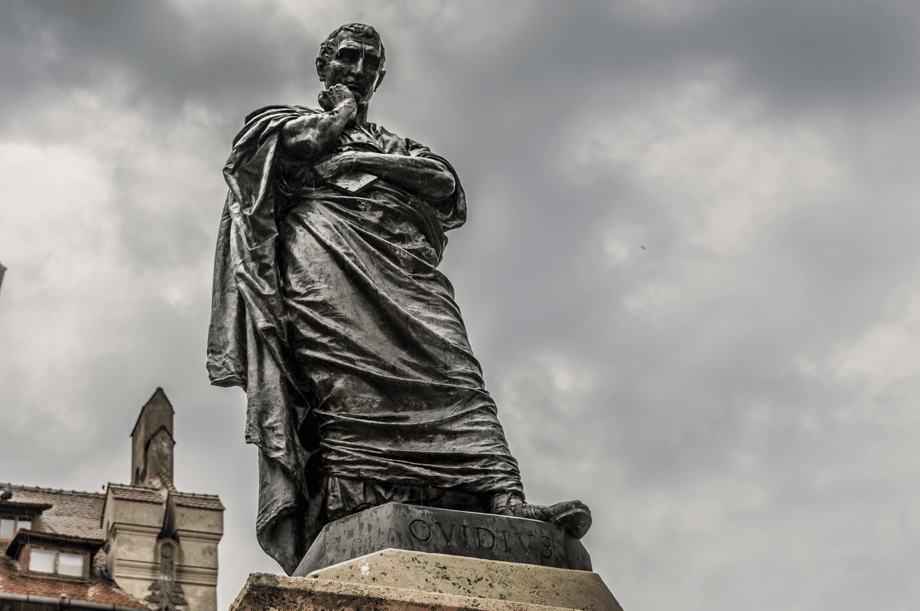How Ancient Greece Shaped Ovid, Rome’s Master Poet
Source: GreekReporter.com

If we took ancient Greece out of the equation, the Ovid we celebrate and admire today wouldn’t exist. Yes, Publius Ovidius Naso was a true and proud Roman, born in Sulmona, Italy and having lived under Emperor Augustus, but the very heat of his poetry, the dazzling stories that have hooked readers for two thousand years, came straight from Greek inspiration. Never mind the Tiber River—Ovid’s poetic inspiration was undeniably the Aegean Sea.
Ovid and Ancient Greece’s mythology
Could you even imagine Ovid trying to piece together his masterpiece, the Metamorphoses, without that massive, wild, and—let’s face it—often scandalous collection of Greek myths that had inspired generations upon generations of Romans? There is just simply no way. His epic list of tales, all cleverly tied together by the idea of transformation, basically reads like a who’s who of a Greek legend.
It begins with the world’s creation, very similar to Hesiod’s Theogony, then dives into heartbreaking tales such as Apollo chasing Daphne, the tragic young love of Pyramus and Thisbe, and Orpheus going to hell and back for Eurydice. These are Greek stories, heart and soul, just given a stylish Roman makeover by Ovid.
Ovid, nonetheless, didn’t just list them. He was in no way a copycat. He dove deep within them, often layering in clever psychological angles or a surprising finish to uniquely recreate the myths. It’s funny when you realize that the versions of many Greek myths rattling around in our own heads probably came through Ovid’s retelling. He wasn’t borrowing material; he inherited a goldmine and knew exactly how to spend it.

The role of Homer
Sure, Homer’s epics, the Iliad and Odyssey, loom large over pretty much everything that came after, be it Hellenistic or Roman. But if you listen closely to Ovid’s style, you might hear the voices of later Greek poets, the Hellenistic crowd, even more clearly. Think guys like Callimachus over in Alexandria—poets obsessed with clever references, super-polished writing (what they called leptotes), and digging up aetia (Greek for reason). There are also those little origin stories behind names or customs. That whole vibe left a huge mark on how Ovid worked and created his masterpieces.
He wasn’t really trying to capture Homer’s soul; he was channeling the sophisticated, often witty, and sometimes even scholarly style that Hellenistic poets nailed a few decades before his time. You spot it in the Metamorphoses’ complex storyline and the smart tone Ovid often takes on, even when talking about the mighty gods. It’s miles away from the deep piety you find in older Greek works, particularly in Homer. Ovid, much like those Hellenistic poets he admired, wasn’t afraid to poke fun or gently nudge the sacred cows.
However, it would be a crime to say that Ovid was simply copying. He was a creative force, taking Greek culture and actively reshaping it. He grabbed the raw emotion and deep character dives from Greek playwrights such as Aeschylus, Sophocles, and Euripides and poured them into a distinctly Roman mold to make them new. His characters often feel sharper, their reasons messier, and their changes more gut-wrenching than in some of the originals.
Take his Heroides, for instance—a brilliant set of letters supposedly penned by mythical women (mostly Greek figures the likes of Penelope or a furious Medea) to the men who had left them hanging. The idea had Hellenistic roots for sure, but Ovid ran with it, diving deep into how these women felt with a kind of empathy that still feels incredibly modern. He knew his audience back in Rome, knew what made them tick, and expertly changed Greek epic and tragedy to become instantly popular in Augustus’s world, a world so similar but also so different from that of ancient Athens.
Often, he zoomed in on love, heartbreak, and personal drama more than the bigger political or religious themes one might find in the Greek originals. He made ancient myths feel urgent, relatable, and perfectly Roman, even while their essential Greekness shone through.
Hence, Ovid’s well-deserved fame millennia after his death isn’t due merely to his own brilliance; it’s proof of the sheer power of that combination of Greek cultural inheritance and Roman repurposing. This brings to mind Renaissance artists painting his scenes, Shakespeare lifting his plots, or just us, today, still fascinated by his stories of change and passion.
Ovid became a real bridge, linking us directly back to the foundational stories of ancient Greece. Therefore, when we read Ovid, we can still hear that powerful, persistent Greek echo, a voice that continues to shape how we think about myths, stories, and maybe even ourselves.
Related: How Ancient Greece Shaped Rome’s Greatest Poet, Virgil
The original article: belongs to GreekReporter.com .
